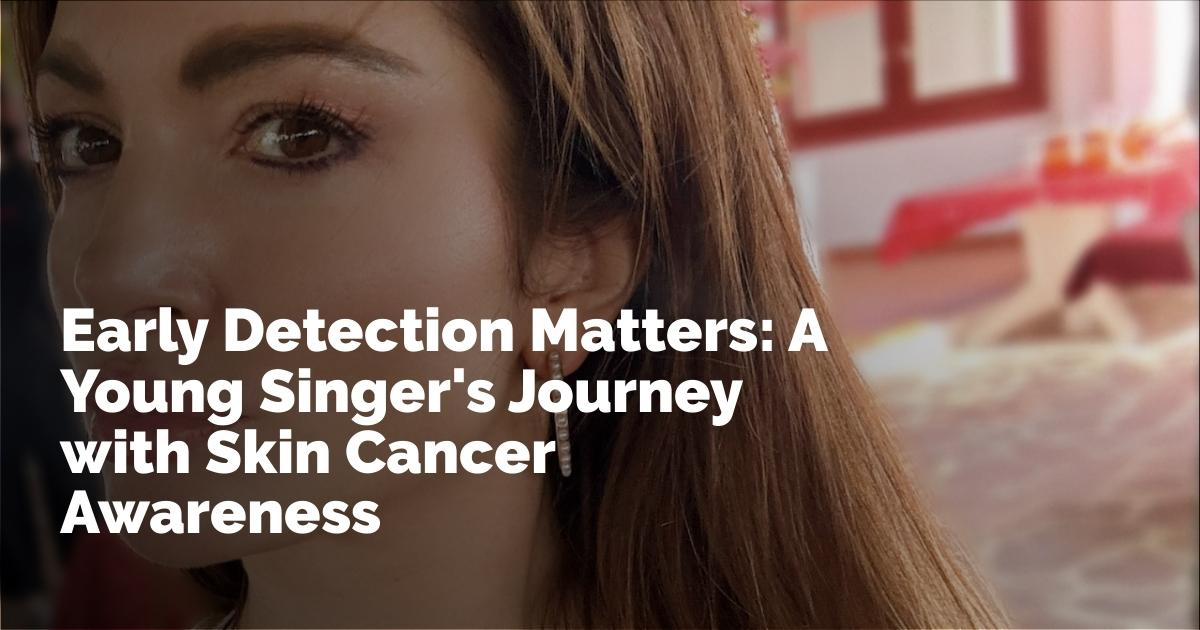Elle L Raises Awareness About Basal Cell Carcinoma
Elle L, a British singer-songwriter known for her song "You," has recently shared a personal story about her diagnosis with basal cell carcinoma (BCC) at a relatively young age. This revelation, originally detailed in an interview with Harper’s Bazaar UK, stems from her experience dismissing a seemingly minor blemish as a mere blocked pore. Elle L is now advocating for early detection of skin cancers, emphasizing the critical role that awareness plays in prevention and sun safety.
The Shocking Diagnosis
After multiple assurances from aesthetics experts that a small mark above her eyebrow was nothing to worry about, Elle L received her shocking diagnosis. Despite living a life conscious of her appearance, recently receiving a youthful skin assessment indicating an age of 24, the diagnosis of BCC was unexpected.
Before Christmas, Elle had made an appointment at the Montrose Clinic for marks on her legs, which turned out to be benign sunspots. However, a conversation about a tiny 2mm mark on her face led to a biopsy, despite her initial belief that it was as innocuous as a blocked pore. The suggestion of a biopsy by her dermatologist, Dr. Eirini Merika, came from Elle’s history of tanning and using sunbeds, spotlighting a small blemish that most would overlook.
The Reality of Basal Cell Carcinoma
BCC, while highly treatable and typically slow-growing, can become significantly disfiguring and dangerous if left unchecked. The skin cancer manifests in various forms, often as non-alarming lesions that might be mistaken for pimples, skin tags, or harmless scars. These spots can become aggressive over time, posing serious health risks.
For Elle L, the call on New Year’s Eve with her basal cell carcinoma diagnosis surfaced as a moment of terror, yet acceptance. The diagnosis included an infiltrative subtype that, though aggressive, was treatable. Her treatment journey involved undergoing Mohs surgery, a specialized technique that removes cancerous tissues layer by layer until no further cancer is detected. After a second surgery, receiving the “all clear” was a moment of release, but also one of reflection, underscoring the need to approach her skin care with greater respect.
Understanding Basal Cell Carcinoma's Seriousness
Basal cell carcinoma is the most common form of skin cancer, resulting from the abnormal growth of basal cells in the skin’s top layer. The slow-growing nature of BCC generally allows for early treatment and high curability rates. However, untreated BCC lesions can expand and cause extensive local damage, affecting tissues and potentially invading deeper structures like bone.
Although rare, there are aggressive cases where BCC spreads beyond the tumor site, which can become life-threatening. This underscores the necessity of early detection and immediate treatment. Delaying care increases the likelihood of reoccurrence, and therefore, vigilance is necessary, as BCCs can masquerade as ordinary dermatological issues.
Treatment Modalities for Basal Cell Carcinoma
An essential strategy for managing BCC involves early diagnosis and strategic removal. Typically, Mohs surgery is recommended for BCC patients. This microscopically controlled surgery involves removing cancerous tissues layer by layer while preserving as much healthy tissue as possible. It is highly effective and often performed on an outpatient basis with local anesthesia.
Before surgery, the diagnosis of BCC is confirmed through a biopsy. Post-operatively, some patients may require reconstructive surgery to address cosmetic and functional aspects depending on the defect left post-excision. Moreover, ongoing care involves regular monitoring to catch any signs of reoccurrence and managing skin health proactively.
Protective Measures Against Skin Cancer
Anyone can develop skin cancer, so it’s critical to adopt protective measures. Dr. Dendy Engelman, a dermatologist, recommends five key strategies to minimize risk:
- Avoid sun exposure during peak hours (10 a.m. to 2 p.m.).
- Wear protective clothing like wide-brimmed hats and sunglasses.
- Apply SPF 30 sunscreen or higher and reapply it regularly.
- Avoid tanning beds entirely.
- Have annual skin examinations with a dermatologist.
Skin protection should be a year-round commitment. Many people mistakenly view sun protection as a summer-only necessity, but sunlight in colder months can also damage the skin. For instance, skiing poses high risks of sun damage despite cold conditions.
Self-Monitoring for Skin Changes
Between regular dermatologist visits, self-checks are invaluable for early skin cancer detection. Dr. Cecilia Larocca advises using the ABCDE checklist to evaluate moles:
- Asymmetry: One half differs from the other.
- Borders: Edges that are irregular or bleed.
- Colors: Varied shades within one mole.
- Diameter: Larger than 6mm.
- Evolution: Any change in appearance, texture, or sensation.
Critical Questions to Discuss with Your Doctor
If diagnosed with skin cancer, it’s essential to have an informed discussion with your healthcare provider. Key questions might include:
- What specific type of skin cancer do I have?
- What are the treatment options, and will insurance cover them?
- Are there clinical trials suitable for my case?
- What support is available to manage anxiety linked to the diagnosis?
The Importance of Early Detection
Elle L’s journey with BCC is a lesson in the importance of paying attention to one’s skin and advocating for early medical intervention. What seemed like a minor imperfection was, in fact, a serious health issue. Her story is a powerful reminder that early detection not only aids in effective treatment but can prevent potentially life-altering consequences of untreated skin cancer.
출처 : Original Source

